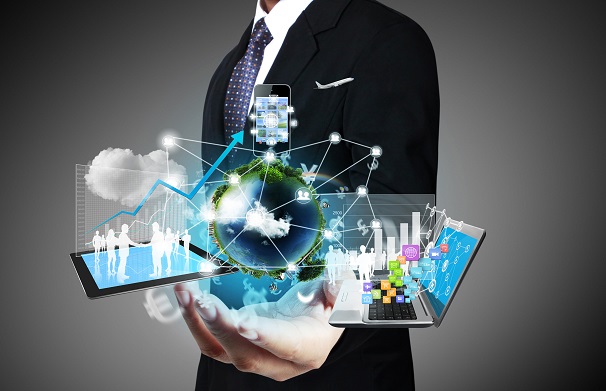- Home
- WELCOME TO THE NEWSROOM
- HR in 2020; the technological advantages and security challenges
HR in 2020; the technological advantages and security challenges
Written by Sanderson Recruitment | Blog | Human Resources | Digital Technology | Posted 06/11/2014

As employees’ expectations change and workplaces become increasingly diverse, HR needs to be prepared to respond to the developments ahead. Our upcoming round table debate, ‘HR in 2020; are we ready for emerging global, technological and demographic change?’, will explore these impacts on the workplace of tomorrow, which will have to ready itself for the challenges that organisational change brings. Among other things, the debate will cover:
How will talent attraction and employer brand change with technology?
Rapid expansion and improvements in technology, in conjunction with growing adoption rates, have led businesses to consider how this can be incorporated into certain processes. As video interviews and sourcing candidates via social media becomes more and more common, the hiring process has already begun to embrace technology, but is this just the beginning? Will candidates soon be expected to provide video CVs, for instance? Will this be a more effective means of finding the right candidates?
Another extraordinary development is the emergence of gamification (the use of ‘gaming mechanics’, such as rewarding employees with points,the filling of a progress baror virtual currency to engage employees in solving problems). This is an increasingly popular example of companies embracing technology in order to achieve business goals.
Perhaps the most successful technological development has been the widespread use of LinkedIn. Most individuals are now expected to have a profile, revolutionising self-promotion and recruitment, and engaging the tech-savvy Gen Y. However, it is widely acknowledged that more needs to be done to attract this demographic, and it will be interesting to see how this develops.
The IT and Legal issues surrounding flexible working via mobile and the ‘bring your own device’ approach
The traditional 9-5 office-based week steadily becoming an outdated concept, and how and when people work is constantly changing. Although this has many benefits in terms of work/life balance and job satisfaction, flexible working is tough for managers to get right. If you have a portable device which you can work from, can choose your hours and can work from home, then how can you keep up with where the line is drawn? With this approach, the boundaries required for a healthy work/life balance become harder to define.
HR’s latest buzzword ‘bring your own device’ (BYOD), that is, using your own personal laptop, mobile phone or tablet to work away from the office, may be the answer to a lot of problems, but it poses many security and policy risks. HR should take proactive steps to fully understand and monitor this approach. Using social media in the workplace, particularly on personal devices, is an issue The HR World debate will explore in depth, asking; should employees be accessing these at work? What happens if they are partaking in inappropriate activity in work time or on business accounts?
The cultural shift required as businesses develop globally
As the marketplace explores international relationships, HR will be very busy managing and integrating an increasingly diverse work force. Different work practices and organisational thinking will require some proactive, transformational thinking, and The HR World debate will aim to put a finger on specific approaches, perhaps even defining a new breed of HR.
To discuss these issues and more, we will host a round table dinner on the 11th November led by Helen Norris, Head of HR Partners at Nationwide Building Society, and attended by a collection of senior HR thought leaders. If you would like more information about The HR World’s round table debates and would like to get involved in future events, then please contact Caroline Beer on caroline.beer@TheHRWorld.co.uk or 07772 136 284.